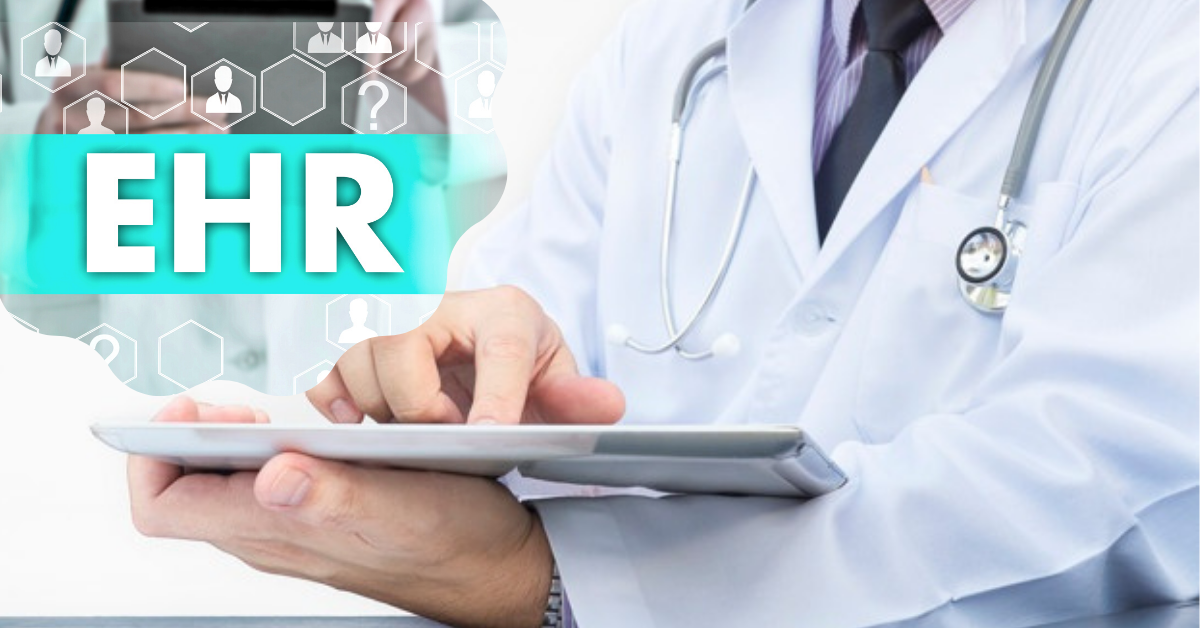Healthcare is transforming like never before. In the ever-evolving landscape of healthcare, Electronic Health Record (EHR) systems have emerged as a revolutionary tool transforming the way patient care is delivered and managed. EHR systems have brought about a new era in healthcare, marked by better efficiency, patient outcomes, and unique insights. In this blog post, we will delve into the 10 transformative ways EHR systems are revolutionizing patient care quality and overall healthcare systems.
Top 10 Ways EHR is Transforming Patient HealthCare
Comprehensive Patient Profiles
EHR systems are used to create a comprehensive & dynamic record of a patient’s medical history. This includes past diagnoses, treatments, surgeries, allergies, medications, and even lifestyle factors. This medical data empowers healthcare providers to get an insight of the patient’s health & use them accordingly to make more informed decisions. The data is further used to tailor treatments as per individual needs, and reduce the risk of adverse events. With HER systems there is less room for error, and patient care becomes more precise & relevant.

Enhanced Care Coordination
EHRs are like digital hubs where healthcare professionals like physicians, nurses, specialists, pharmacists, and administrative staff can collaborate & access a patient’s record simultaneously. This real-time access to patient data facilitates better care coordination. For instance, when a patient is discharged, the primary care physician can instantly access the hospital’s records, ensuring continuity of care. Care teams can communicate, share updates, and make decisions faster, leading to improved patient outcomes.
Timely Access to Information
Gone are the days of keeping paper records. With EHR systems, healthcare providers have instant access to patient information. This means physicians can make quicker, more informed decisions about diagnosis, treatment, and medication. It streamlines clinical workflows, reduces delays, and improves patient care efficiency. Patients experience shorter wait times and a smoother healthcare journey.
Decision Support Tools
EHRs are equipped with decision support tools that provide valuable insights to healthcare providers. These tools include clinical guidelines, alerts, reminders, and evidence-based recommendations. When a physician is entering a prescription, the system can alert them to potential drug interactions or allergies. It’s like having a virtual assistant that ensures best practices are followed, leading to more accurate diagnoses and personalized treatment plans.

Improved Medication Management
One of the critical aspects of patient care is medication management. EHR systems help healthcare providers reconcile medications accurately. They cross-check prescribed medications with the patient’s history, highlighting any potential issues. This significantly reduces the risk of medication errors, which can have severe consequences for patient safety. Automated refills and electronic prescription submission further enhance this aspect of care.
Patient Engagement
EHR systems empower patients to take an active role in their healthcare. Patients can access their own records, test results, and treatment plans through patient portals. This fosters engagement and encourages patients to be informed about their health. They can review their progress, set goals, and communicate directly with their healthcare providers. Engaged patients tend to be more compliant with treatment plans and experience better outcomes.
Data Analytics for Insights
EHRs are treasure troves of healthcare data. They store vast amounts of information that can be analyzed to derive valuable insights. Healthcare institutions can use analytics to identify trends, assess outcomes, and track the effectiveness of treatments. For example, they can identify high-risk patient populations and implement preventive measures. Data-driven decision-making leads to continuous quality improvement, ensuring that patient care remains at the forefront of healthcare practices.
Telehealth Integration
The COVID-19 pandemic accelerated the adoption of telehealth services. EHR systems seamlessly integrate with telehealth platforms, making remote consultations possible. This expansion of access to care is especially valuable in rural or underserved areas. Patients can receive medical advice, follow-up appointments, and even specialist consultations from the comfort of their homes. Telehealth not only increases patient access to care but also reduces the burden on healthcare facilities.
Population Health Management
EHRs play a crucial role in population health management. Healthcare organizations can use EHR data to identify at-risk patient populations and implement targeted interventions. For example, they can identify individuals who require preventive screenings or vaccinations. By proactively addressing health issues, healthcare providers can prevent diseases, improve outcomes, and enhance overall community health.
Enhanced Patient Safety
Patient safety is paramount in healthcare, and EHR systems significantly contribute to this aspect. By reducing errors, minimizing duplicate tests, and improving the accuracy of medical records, EHRs enhance patient safety. For instance, automated alerts and reminders help healthcare providers avoid potentially harmful situations, such as drug interactions or missed appointments. Patients can also be actively engaged in safety measures, such as verifying their information in the system.
Final Thoughts
In conclusion, EHR systems are catalysts for a healthcare transformation. They streamline processes, facilitate communication, and put valuable information at the fingertips of healthcare providers. By revolutionizing the way patient data is captured, shared, and analyzed, EHRs enhance care coordination, empower patients, and drive continuous quality improvement. As healthcare continues to evolve, EHR systems will remain central to delivering high-quality patient care while offering a new era of healthcare excellence.
Build Customized EHR Healthcare Solutions with QSS Technosoft
Partner with QSS Technosoft Inc. for all your EHR development or integration needs. Our experienced team is dedicated to crafting customized EHR solutions that elevate patient care quality and streamline healthcare workflows. Join us in the journey toward a more connected and patient-centric future of healthcare.
Have a requirement? Connect to our top Healthcare experts for a quick free consultation call!
We are proud to mention that our work has been recognized by leading B2B reviews and research platforms like GoodFirms, Clutch, MirrorView, and many more.


Top 10 Transformative Role of EHR Systems in Modern Healthcare